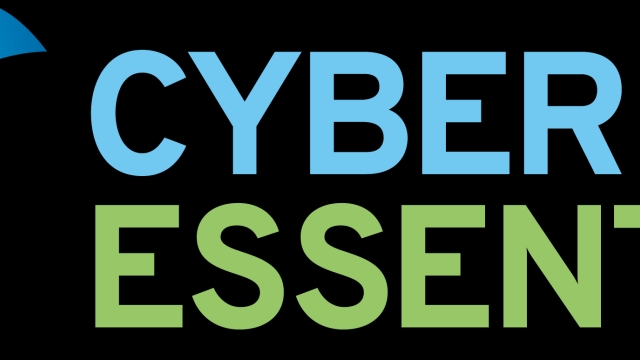
Unlocking the Key to Cyber Security: A Guide to Cyber Essentials

Cybersecurity has become an essential aspect of our increasingly digital world. With the ever-growing reliance on technology, the importance of protecting our sensitive information and digital assets from various cyber threats cannot be overstated. This is where Cyber Essentials comes into play. As the name suggests, Cyber Essentials is a framework that provides a foundation for businesses and organizations to build robust security measures that safeguard their networks, systems, and data from cyber attacks. By implementing these essentials, companies can significantly reduce their vulnerability and ensure a safer online environment for themselves and their customers.
At its core, Cyber Essentials focuses on five key areas that form the foundation of a strong cybersecurity strategy. These include the use of secure configurations, the establishment of robust access controls, the implementation of robust malware protection, the regular patching of systems and software, and the adoption of measures to prevent unauthorized access and data leakage. By adhering to these essential practices, organizations can create a well-rounded defense system that fortifies their digital infrastructure against potential threats.
While Cyber Essentials provides a baseline for cybersecurity best practices, it is crucial to understand that it is not a one-time solution. Cyber threats are continually evolving, and it is essential to stay proactive and adapt security measures accordingly. Regular risk assessments, employee training, and staying updated with the latest security trends and technologies are all paramount in maintaining a strong cybersecurity posture.
In conclusion, Cyber Essentials serves as a vital guide in the complex world of cybersecurity. By adhering to its foundational principles, businesses and organizations can enhance their defense against potential cyber threats, minimize risks, and create a secure digital environment for themselves and their stakeholders. Remember, protecting your digital assets should be an ongoing endeavor, and integrating Cyber Essentials into your security strategy is a significant step towards safeguarding your organization in today’s hyper-connected world.
Understanding Cyber Essentials
Cyber Essentials is a comprehensive framework that aims to enhance the cybersecurity posture of organizations. It provides a set of fundamental security measures and best practices, which, when implemented correctly, can significantly reduce the risk of cyber threats and attacks. These measures are designed to address the most common cyber vulnerabilities and protect against a range of cyber threats, including malware infections, phishing attacks, and unauthorized access to sensitive data.
The Cyber Essentials framework is centered around five essential controls that form the foundation of a robust cybersecurity strategy. These controls include securing internet-connected devices and systems, configuring them securely, controlling access to data and services, protecting against malware, and keeping devices and software up to date with the latest security patches. By implementing and maintaining these controls, organizations can establish a solid defense against a wide array of cyber threats.
One of the key benefits of Cyber Essentials is its simplicity and accessibility. The framework is designed to be practical and achievable for organizations of all sizes, from small businesses to large enterprises. It provides clear guidance and a straightforward approach to implementing essential cybersecurity measures, even for those with limited technical expertise. By following the Cyber Essentials guidelines, organizations can take meaningful steps towards securing their systems and data, regardless of their level of cybersecurity maturity.
In addition to strengthening the overall cybersecurity posture, achieving Cyber Essentials certification can also provide organizations with a competitive advantage. It demonstrates a commitment to cybersecurity best practices and can enhance trust and confidence among customers, partners, and stakeholders. Furthermore, some government contracts and business opportunities require Cyber Essentials certification as a prerequisite, making it a valuable credential for organizations seeking to expand their operations.
Overall, Cyber Essentials serves as a vital tool in the fight against cyber threats. By understanding and implementing the framework’s essential controls, organizations can significantly reduce the risk of cyber incidents and protect their valuable assets, thereby safeguarding their operations, reputation, and customer trust.
Benefits of Cyber Essentials
Enhanced Protection:
Implementing Cyber Essentials can significantly enhance your organization’s protection against cyber threats. By adhering to the recommended security practices, you establish a strong foundation for safeguarding your systems and data. This can help in minimizing the risk of cyberattacks, such as malware infections, unauthorized access, and data breaches.Improved Business Reputation:
Achieving Cyber Essentials certification demonstrates your commitment to maintaining a high level of cybersecurity. This can enhance your business reputation, as clients and partners recognize your proactive approach in safeguarding their sensitive information. The certification serves as a valuable proof of your dedication to maintaining a secure environment for conducting business.Increased Opportunities:
Having Cyber Essentials certification can open up new opportunities for your organization. Many government contracts and business tenders now require suppliers to hold Cyber Essentials certification. By obtaining this certification, you expand your eligibility for such contracts and improve your chances of partnering with larger organizations that prioritize cybersecurity.
Cyber Essentials
Keep in mind that implementing Cyber Essentials is not only about compliance but also about the advantages it brings to your business. By investing in cybersecurity measures, you can protect sensitive data, build trust with stakeholders, and ultimately, gain a competitive edge in the digital landscape.
Implementing Cyber Essentials
Implementing Cyber Essentials is crucial for organizations looking to enhance their cybersecurity defenses. By following the guidelines and best practices outlined in the Cyber Essentials framework, businesses can significantly reduce the risk of falling victim to cyber threats.
The first step towards implementing Cyber Essentials is to conduct a thorough assessment of the organization’s current cybersecurity measures. This involves evaluating the existing infrastructure, identifying potential vulnerabilities, and understanding the level of protection already in place. By conducting this assessment, organizations can gain valuable insights into the areas where improvement is needed.
Once the assessment is complete, the next step is to address the identified vulnerabilities and strengthen the overall security posture. This can include implementing strong passwords and multi-factor authentication, regularly updating and patching software, and ensuring that firewalls and antivirus software are in place and functioning effectively. Additionally, employee awareness and training programs should be implemented to educate staff about common cyber threats and how to identify and report potential risks.
Continuous monitoring and reassessment are essential elements of the implementation process. Regularly reviewing and analyzing the organization’s security measures helps to ensure that any new vulnerabilities or emerging threats are promptly addressed. By staying vigilant and proactive, organizations can significantly improve their resilience against cyber-attacks.
In conclusion, implementing Cyber Essentials is a critical step for organizations to enhance their cybersecurity defenses. By conducting a thorough assessment, addressing vulnerabilities, and continuously monitoring and reassessing their security measures, businesses can significantly reduce their risk exposure and better protect their sensitive data and assets.



